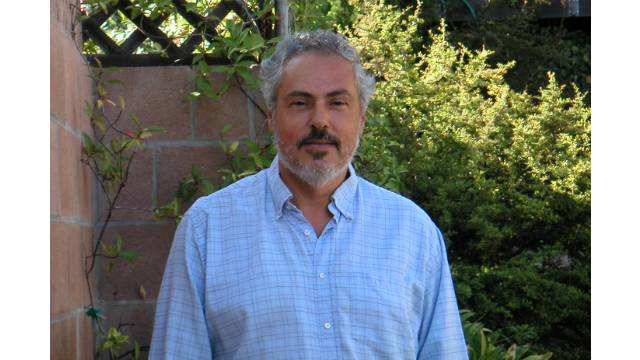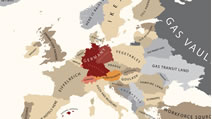Why Penalty Has No Impact on Crime

If criminals are rational and want to avoid being punished, would they become less likely to commit a crime if the penalty for the crime is increased? The surprising answer is “No.” It’s because criminals don’t make decisions; they play games.
In an earlier post, I explain that one of the best scientific articles that I have ever read is “Why Your Friends Have More Friends Than You Do” by Scott Feld. I love how elegantly Scott explains the counterintuitive fact that, no matter who you are and how many (or few) friends you have, your friends on average always have more friends than you do (and your girlfriend has had more sexual partners than you have). For the same reason, I also love “Penalty Has No Impact on Crime: A Game-Theoretic Analysis,” published in 1990 in Rationality and Society by the political scientist George Tsebelis (then of UCLA, currently of the University of Michigan).
In order to understand why increasing the magnitude of penalty does not decrease the prevalence of crime, I first have to explain the difference between decision theory and game theory. Both are in the family of theories called rational choice theory (or, more technically, subjective expected utility maximization theory). In simple terms, both theories assume that individuals are rational actors who seek to maximize their gains and minimize their losses. Yet there are subtle and important differences between the two.
Decision theory is about an individual actor (the decision-maker) making a rational decision against Nature. Nature provides relevant information. The decision-maker evaluates the information, calculates the expected costs and benefits of alternative courses of action, and then chooses the course of action that maximizes the benefits and minimizes the costs. The decision to carry an umbrella when it looks like it might rain later in the day is an example of a decision-theoretic analysis. Nature (often interpreted by the local meteorologist) gives certain information about the probability of rain later in the day. Depending upon the estimated probability of rain, the decision-maker decides to carry an umbrella or leave it at home. Ceteris paribus, a rational decision-maker should always be more likely to decide to carry an umbrella when the estimated probability of rain is 70% than when it is 30%.
The important point to note is that, in decision theory, Nature never reacts to the decision-maker’s choice. Nature never says (even if it had a vocal cord) “Look, so many people decided to leave their umbrellas home! Idiots! I’ll make it rain and make them all soaking wet just to teach them a lesson! Hahahahaha!!!” The probability of rain is independent of the decision-maker’s choice. It remains the same if everybody carries their umbrellas with them or if nobody does.
This is not the case with game theory, which models the interdependent choices of two or more actors, all of whom are rational and, more importantly, respond to the choices made by others. Game-theoretic analysis is therefore necessarily more complex and dynamic than decision-theoretic analysis.
The crime rate is much lower in Ithaca, NY, than in Detroit, MI. More cars are stolen in Detroit every day than in Ithaca all year. So any rational driver should be more likely to lock their cars and install anti-theft devices in Detroit than in Ithaca. More rational drivers should leave their cars unlocked in Ithaca than in Detroit.
Unlike Nature, however, car thieves do respond to the choices made by drivers. Unlike Nature, car thieves do say “Look, so many people decided to leave their cars unlocked! Idiots! I’ll steal their cars (or car stereos or other valuables in the car) just to teach them a lesson! Hahahahaha!!!” If most people leave their cars unlocked in Ithaca, and if most people keep their cars locked in Detroit, eventually, the rate of auto thefts should increase in Ithaca and decrease in Detroit, because car thieves respond to the decisions made by drivers.
This, in essence, is why penalty has no impact on crime. Tsebelis makes the astute observation that a decision of a potential criminal to commit a crime or not cannot be modeled as a decision-theoretic problem, as if the criminal is facing unresponsive Nature, but must instead be modeled as a game-theoretic problem, where the criminals and the police make interdependent decisions. Just like criminals, the police are rational actors who seek to maximize their gains and minimize their costs.
If you increase the penalty for a crime, it would initially discourage criminals and the crime rate will go down. But, knowing that, the police, with their limited resources, will respond by decreasing their enforcement. Knowing that there are fewer criminals who are tempted to commit crimes, fewer police officers will patrol the neighborhoods and the streets. Vigilance and monitoring will therefore decrease. Criminals will then respond to the decreased monitoring and enforcement by committing more crimes. In the end (or, in the technical game-theoretic language, at equilibrium), the crime rate will resume to what it was before the penalty was increased. Increased penalty therefore does not decrease crime in the long run.
In a different paper, published in American Political Science Review in 1989, Tsebelis calls the confusion of decision theory and game theory “The Robinson Crusoe Fallacy.” Initially, Robinson Crusoe assumed that he was stranded on an entirely deserted island and he was completely alone. If this were true, then any decision Crusoe makes could properly be analyzed by decision theory. The ocean, the sky, and the coconut trees would not respond to Crusoe’s decisions. But Crusoe soon discovers that he was not indeed alone on the island, and there was another rational actor. Crusoe’s awareness of the presence of Friday on the island turns all of his choices from the proper domain of decision theory to that of game theory. Now there are two rational actors who respond to each other’s decisions and choices.
The belief that increasing the penalty will reduce the crime stems from the Robinson Crusoe fallacy. Penalty has no impact on crime because crime is a game-theoretic problem, whether it involve the criminal and the potential victim (the driver in Detroit or Ithaca) or the criminal and the police. It’s not a decision-theoretic problem.
Of course, as an evolutionary psychologist, I now know that there is an entirely different reason that penalty has no impact on crime. As I explain in Chapter 11 of my book The Intelligence Paradox: Why the Intelligent Choice Isn’t Always the Smart One , because the criminal justice system – the police, the court, the prison – is entirely evolutionarily novel, it is very difficult for criminals, who on average have lower intelligence than noncriminals, to comprehend them and respond to them properly. But that’s an entirely different matter. Tsebelis’s elegant analysis shows us that there is a rational economic reason why penalty has no impact on crime.
Follow me on Twitter: @SatoshiKanazawa


